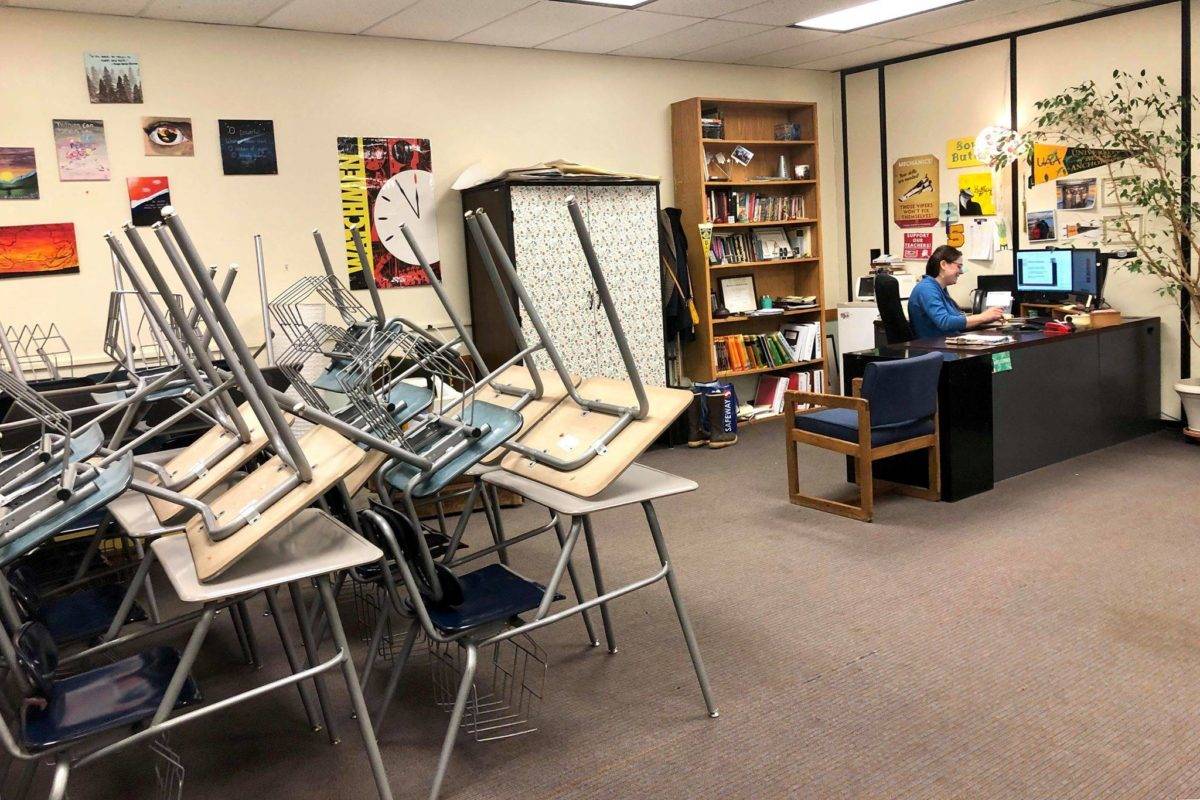By Robert Summer
Years ago, a teaching colleague, who was also a parent of students in our schools, said something that clearly exemplified my personal philosophy about teaching. I will try my best to do her justice in this quote, “Schools were built for students. Anyone who thinks they were built for the staff, or the teachers or the administration is sorely mistaken.”
It has been difficult to watch our schools emptied of students. This building, where I sit in an empty classroom on a Wednesday, is usually one of the most high-energy, positive places one can imagine. Young people in an amazing period of their lives — middle school — figuring out who they are and where they fit in, honing skills, being in class and not missing a thing, even if their attention is not on the lesson. As an educator, when coming to an empty school to Zoom and prepare for online lessons and assignments, silent hallways and silent classrooms emphasize my colleague’s quote loudly.
Speaking only for myself (with consideration for an incredible spouse who was a nurse during the SARS epidemic in China, who is very aware of contagious illnesses and concerns for my and her health, as well as considerations for a daughter in college), I do not take this illness lightly. Even when following guidelines, wearing a mask, washing hands, social distancing, who gets the disease and who does not seems almost capricious. As life is. I may get COVID or I may not. Should I follow all the guidelines and still get the virus as others I know have, my hope would be to get through it, and then come back to continue teaching. There are, of course, personal concerns perhaps in my future as a member of a “high-risk group” — there may be a need to be placed on a ventilator, and perhaps my outcome could be fatal, as has been the case with others.
That said, I would hate to have so many students not get to experience school in person because of my personal concerns. My school, our school, was not built for me as a teacher. My school, our school was built for the students.
Oct. 13, staff and students were told we were going to remote learning. Had the option been available for parents of students who attend our school (as well as staff at our school) to vote by choosing to send their children to school the following day, there is little doubt 95% of our parents would have trusted to have their children come to school in person where staff would be waiting. Up to this point, students as usual, rose to the expectations asked of them — mask-wearing, social distancing, and sanitizing desks between classes. Perhaps decisions could be a school-by-school option with parents making the decision?
A personal philosophy to COVID can be similar to one’s personal philosophy about life. There will always be risks in life and we should be responsible and smart. However, when our fears affect those we are supposed to be serving, as in depriving our young people a quality education, which includes the social, mental, psychological, spiritual, as well as the physical setting, perhaps a reconsideration of the purpose of these empty buildings is in order.
It seems fitting to end this perspective with another quote — appreciated most of this educator’s life — that is in my classroom:
“Security is mostly a superstition. It does not exist in nature, nor do the children of men as a whole experience it. Avoiding danger is no safer in the long run than outright exposure. Life is either a daring adventure, or nothing.” — Helen Keller
Robert Summer is a teacher at Kenai Middle School.

